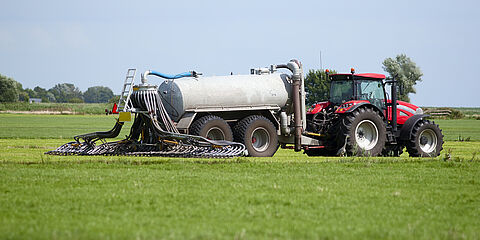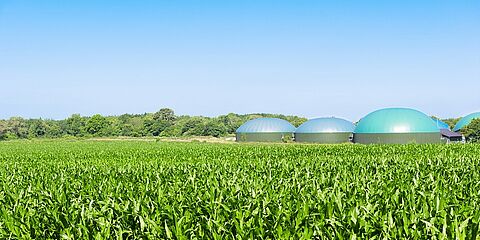Characterise and optimise your fuel flows
WESSLING will support you in your energy recovery programme. With our analytical engineering expertise, we will help you monitor your fuel flows to determine their efficiency and points of vigilance. This includes out-of-the-ordinary projects.
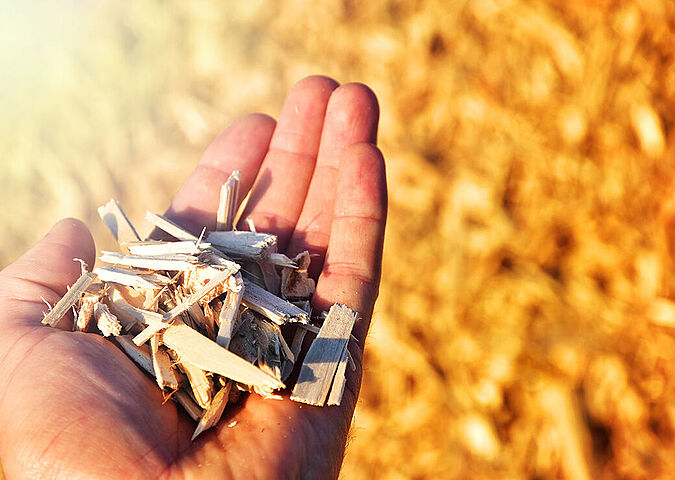
There is an increasing demand today for alternative fuels such as wood pellets and chips, waste and biomass. They make waste recovery possible and therefore help us to be part of a circular and more sustainable economy.
Plastic waste and waste with high organic content (grease, oils, etc.) have a high energy potential. Their recovery by combustion is of real interest in improving the carbon footprint of waste. In addition to the energy potential, this waste may contain chemical compounds with high added value.
Our services in detail
Our services in detail
Biogenic carbon
Laboratory analysis and determination of biogenic carbon content
To reduce wastage of resources and to tax polluting activities, companies involved are liable to pay GTPA (General Tax on Polluting Activities). This tax increases every year. Companies that consume carbon (via combustion) are taxed according to their CO2 emissions into the atmosphere. However, a tonne of CO2 of biogenic origin is taxed less than a tonne of non-biogenic CO2. In our analytical laboratory, we can determine the biogenic carbon content and reduce your carbon tax.

Determination of biogenic carbon to reduce GTPA or enhance the value of your waste
In other words, as a cement manufacturer that consumes the finished product, you can reduce your GTPA according to the proportion of biogenic carbon you produce.
If you want to sell your waste, you can enhance its value by determining the biogenic carbon content and sell your product at a higher price.
How can the biogenic fraction of CO2 reduce GTPA?
Numerous jurisdictions consider energy produced from the biogenic fraction of MSW (municipal solid waste) to be renewable.
According to the IPCC (Intergovernmental Panel on Climate Change), only CO2 emissions resulting from oxidation of carbon in waste of fossil origin (plastics, synthetic fabrics, etc.) are considered net emissions and should be included in CO2 emissions estimates. CO2 emissions from combustion of biomass materials (e.g. food waste, wood and paper) are biogenic emissions and should not be included in the estimates.
Carbon is a common fuel source, historically derived from oil fields or wood. The development of virtuous circles and a circular economy has extended to (synthetic) plastic materials and wood waste. In order to limit the depletion of fossil fuels, current legislation differentiates taxation of CO2 emissions by distinguishing between two cases: the use of carbon of biological (short-term) origin, such as wood, and the use of carbon of synthetic (fossil) origin.
Determination of renewable carbon content in the analytical laboratory
We determine this content according to the EN 15440 standard or, since 1 January 2021, ISO 21644. We have three determination methods available to us:
- the carbon 14 method,
- selective dissolution,
- manual sorting.
The appropriate analyses are carried out in our laboratory in the Isère department in France. The resulting report clearly indicates the proportion of so-called biogenic (non-fossil) carbon in your product.
The benefits of having your analysis carried out at WESSLING
- Rapid service
- Two methodologies available
- Analysis performed locally, in France.
Our services in detail
Control of fuel flows
Control of fuel flows
The preparation process for solid recovered fuels (SRFs) depends on the technologies used and the input materials.
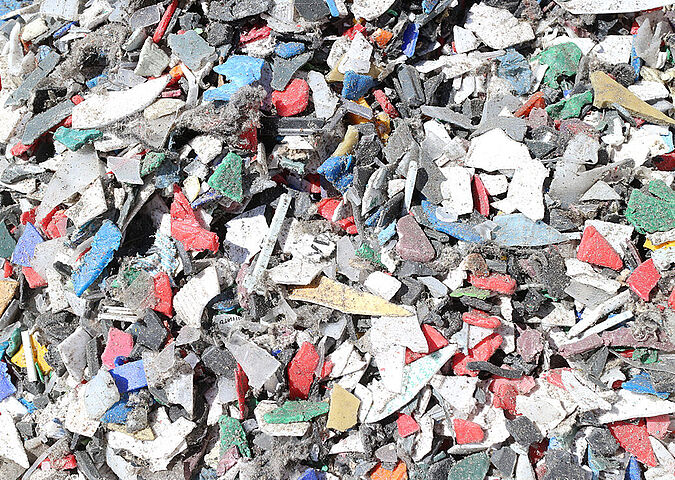
Among the most commonly monitored parameters are:
- humidity level
- heating value (LHV and HHV)
- chlorine level
- ash content
In addition, some processes include measurements of synthetic organic matter and non-synthetic organic matter (SOM and NSOM) as well as inert content.
Legally, a solid recovered fuel is considered as such if it meets the criteria set out in the decree of 23 May 2016 relating to the preparation of secondary fuels. The required parameters make it possible to assess the quality of the fuel from various aspects: pollutants, energy potential, ease of integration, etc.
Our experts will help you competently and reliably to ensure legal compliance with this decree.
Our services in detail
Material recovery
Material recovery
Cement manufacturers can also accept polluted soil or similar materials in their kilns.

The analysis parameters are generally similar to those required for the use of SRFs and LSFs.
The main cement components are analysed to incorporate the material into the cement recipe.
The pollutants are analysed to check that the material does not affect the quality of the cement and its physicochemical properties.
Cement factories are increasingly using waste materials. These include :
- soil polluted with hydrocarbons or heavy metals,
- shooting targets,
- sewage sludge,
- industrial wastewater sludge,
- etc.
Each waste product is subject to strict tests for specific purposes: to preserve the quality of the cement manufacturer's products while ensuring the sustainability of the plant and protecting the environment.
Our services in detail
Recovered fuels in cement manufacture
Recovered fuels in cement manufacture
Cement manufacturers have the option of using alternatives to fossil fuels in their kilns: SRFs (solid recovered fuels) and LSFs (liquid substitute fuels).
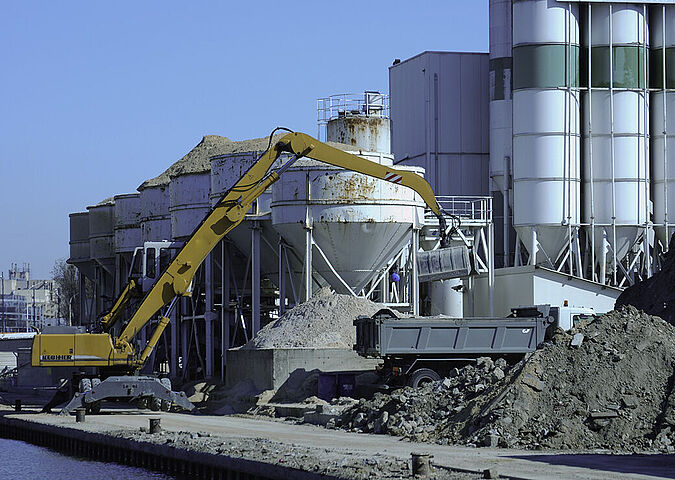
The parameters studied differ from one cement manufacturer to another. We suggest you perform the following analyses:
- combustion parameters: humidity, elemental analysis, heating value, ash
- pollutants, including halogens, chlorinated compounds, heavy metals, hydrocarbons and VOCs
- main cement components: Al2O3, Fe2O3, CaO, etc.
Analysis of all these parameters makes it possible to validate or not the acceptance of the product by the cement manufacturer and forms the basis for commercial negotiations. In fact, it is generally pollutants (heavy metals and halogens) that frustrate cement manufacturers.
Our services in detail
Removal of waste status
Removal of waste status: test your batches of class A timber
Class A wood waste (pallets, packaging wood) can have its waste status removed. This is an essential step to ensure that the product is no longer considered as waste but as a product. This is above all of economic interest, because the product then attains a marketable status.
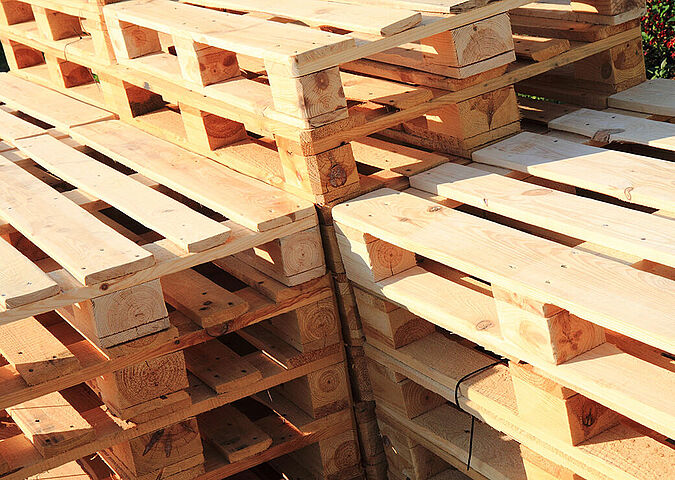
Do you have an out-of-the-ordinary project?
With our know-how and analytical engineering, we will adapt our service to your needs, however specific it may be. Convinced that waste is a resource, we participate in material recovery projects in order to build more sustainable solutions.
Your benefits and our services at a glance:
- rapid flow analysis
- identification of deposits
- process management assistance
- overview of product quality
- adaptation of our service to your specific product
Contact
- Pauline Castillazuelo
- +33 6 13 51 29 59
- pauline.castillazuelo@wessling.fr

